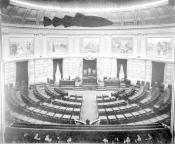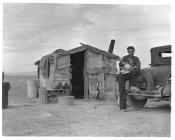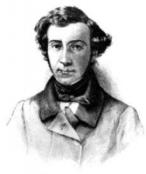 In the very full arena of public policy discourse, what do humanities scholars have to add to the conversation? On some level, as non-policy experts, the answer would seem to be a simple “nothing” (or, if one is being more generous, “fairly little”). But I would like to propose what might seem a radical idea: that it is impossible to have public policy discussions at all without the use or invocation of some of the many issues, findings, suggestions and unearthings that humanities scholars explore and produce. Furthermore, I believe strongly that the skills of humanistic inquiry and discourse can and do have a home in the sometimes rough-and–tumble conversations of legislative chambers, budget committee meetings, Board findings and revenue distribution reports. As humanities scholars, we have an obligation to move in full circles…from inquiry to findings to public sharing for the public good. Breadth and depth of view, movement between perspectives, clarity of explication and willingness to enter murky places, telling human stories with passion and practicing reasoned argumentation, searching for universal understandings and important variations between persons and cultures…these are the skills a humanities scholar can and should bring to broader civil, social, and policy discourses.
In the very full arena of public policy discourse, what do humanities scholars have to add to the conversation? On some level, as non-policy experts, the answer would seem to be a simple “nothing” (or, if one is being more generous, “fairly little”). But I would like to propose what might seem a radical idea: that it is impossible to have public policy discussions at all without the use or invocation of some of the many issues, findings, suggestions and unearthings that humanities scholars explore and produce. Furthermore, I believe strongly that the skills of humanistic inquiry and discourse can and do have a home in the sometimes rough-and–tumble conversations of legislative chambers, budget committee meetings, Board findings and revenue distribution reports. As humanities scholars, we have an obligation to move in full circles…from inquiry to findings to public sharing for the public good. Breadth and depth of view, movement between perspectives, clarity of explication and willingness to enter murky places, telling human stories with passion and practicing reasoned argumentation, searching for universal understandings and important variations between persons and cultures…these are the skills a humanities scholar can and should bring to broader civil, social, and policy discourses.
In my own field of American Studies, scholars have been talking openly and explicitly for some time about the connections between what we do in our offices and classrooms and what goes on “out there” in the wider world. And why not? In a field aimed at studying what “America” is all about (as a place, a people, an idea, a myth) it is impossible for me to imagine my work as separate from the contemporary debates about issues such as who can become an “American” (think current immigration debate), which novels should be required reading in the Massachusetts State Curriculum Frameworks, whether music or art should be seen as “extras” in schools, or what qualities an “American” must demonstrate to “deserve” a higher minimum wage (consider the early 2007 Congressional debates on this topic). For clips of debate from opposing viewpoints see: Rep. Miller (D-CA) (scroll down to Minimum Wage) and Rep. Jack Kingston (R-GA).
But what I hope to do here is open up an even broader conversation about the role of the humanities in social policy discourse by sharing some of my musings on the particular knowledge and skills that humanities scholars have in their kits (“humanities capital”, if you like) and how they might be employed to serve a broader good.
 Photo history & theory: Studying the history of photography forces us to consider the powerful role that photographs play in public (and private) discourse about what is “real” or “true”. Photographs are often held up as "proof" that something did or did not happen, that a condition or problem does or does not exist, or that someone or something was or was not “there”. Most of us know the images of Louis Hine or Dorothea Lange, images that were instrumental in “documenting” poverty, inequality and need—and helping to shape policy as a result. The web has several examples of Lange’s body of work during the Great Depression. Yet, what photo historians have theorized and talked about for years is the way in which photographic images must be skeptically examined and analyzed and how in many cases, the photographs tell us as much (or more) about the worldview of the photographer than about the subjects. In our current climate, it is worth considering what Colin Powell’s presentation to the United Nations about WMDs might have been if photo historians/theorists had weighed in.
Photo history & theory: Studying the history of photography forces us to consider the powerful role that photographs play in public (and private) discourse about what is “real” or “true”. Photographs are often held up as "proof" that something did or did not happen, that a condition or problem does or does not exist, or that someone or something was or was not “there”. Most of us know the images of Louis Hine or Dorothea Lange, images that were instrumental in “documenting” poverty, inequality and need—and helping to shape policy as a result. The web has several examples of Lange’s body of work during the Great Depression. Yet, what photo historians have theorized and talked about for years is the way in which photographic images must be skeptically examined and analyzed and how in many cases, the photographs tell us as much (or more) about the worldview of the photographer than about the subjects. In our current climate, it is worth considering what Colin Powell’s presentation to the United Nations about WMDs might have been if photo historians/theorists had weighed in.
Literature: As literary scholars know, words not only reflect but shape meaning and understanding. They also know that what we label and how we label matters; they know that narratives are crafted slowly and deliberately by selecting images and ideas to reveal or obscure. Lawyers and legal scholars often recognize this and as a resulting word-smithing has become something of a sport in courtroom dramas (not to mention an increasing interest in the field of Law and Literature). What would it mean to inject these literary understandings into public discussions about topics like race or ethnicity and the labels attached to various groups? What would it mean to think about revealing and obscuring when entering into debates over designing memorials, or what/who to include in national narratives of “progress” or “unity”?
Intellectual History and “Community”: In many contemporary public debates, no matter what the topic is under discussion, the creation, shoring-up or saving of something called “community” seems to take center stage. From discussions about whether to zone urban areas for mixed-use, to developing programs aimed at reducing crime, to arguments over the value of neighborhood schools, the phrase “building community” often crops up. Since this topic is my passion I will restrict myself here to simply asking: What would these discussions look like if all people involved understood the historical and philosophical precedents for  these conversations, from Alexis deTocqueville in the 19th century, to Ferdinand T nnies and Jane Addams at the turn of the 20th century, to the late 20th century writings of Robert Putman in Bowling Alone, or Carla Trujillo’s insights about being both Chicana and lesbian. Click here for an interactive interdisciplinary virtual exhibit about de Tocqueville and Democracy in America. A brief article on T nnies can be found here. Carla Trujillo’s writing on this topic is excerpted in “Chicana Lesbians: Fear and Loathing in the Chicano Community”, From Amy Kesselman et al eds. Women: Images and Realities 2nd ed. (1999).
these conversations, from Alexis deTocqueville in the 19th century, to Ferdinand T nnies and Jane Addams at the turn of the 20th century, to the late 20th century writings of Robert Putman in Bowling Alone, or Carla Trujillo’s insights about being both Chicana and lesbian. Click here for an interactive interdisciplinary virtual exhibit about de Tocqueville and Democracy in America. A brief article on T nnies can be found here. Carla Trujillo’s writing on this topic is excerpted in “Chicana Lesbians: Fear and Loathing in the Chicano Community”, From Amy Kesselman et al eds. Women: Images and Realities 2nd ed. (1999).
Might a deeper investigation of the historical discourse of “community” and its place in U.S. intellectual/cultural history change the way we fund or develop or label people, places and relationships? Might we actually require more of each other as members of a “community”?
Philosophy: There is no doubt that one of the things humanities scholars do well is question and debate. As such Socrates may very well be the grandest of all role models for the public humanist. To question and reason as Socrates did offers a way to imagine humanities scholars as publicly engaged without merely appearing from the wings as “experts” only to fade away after the policy is written. In addition, the study of philosophy is intrinsically about deeply examining what is right and true and beautiful and valuable. What would public policy debates look like if philosophers could work with policy makers to explore these questions and the logic behind them at the beginning of a debate?
But is it possible?My sense of the possible (in fact, the required) connection between the humanities and social concerns was sparked years ago when, as a teenager, I realized that Martin Luther King Jr. was a humanities scholar before he was a Civil Rights leader—and more importantly, that his scholarship and training in the humanities were integral to his social change work. I saw too, that some of my feminist heroes like Elizabeth Cady Stanton had brought rhetorical skills and wide-ranging political, theological and literary knowledge to bear on equal rights activism. My initial awareness of the presence and power of public humanists has only been reinforced in the intervening years.
These days I find myself wondering more and more: Is there really any difference between “humanities scholars” and “policy makers” in a fully-engaged civil society? Remember that to study the humanities is to seek out unanswered questions and look for larger truths or patterns by deeply exploring texts and images and stories that are messy and not easily quantifiable. This sounds a lot like the work of policy makers and social change agents if you ask me.

